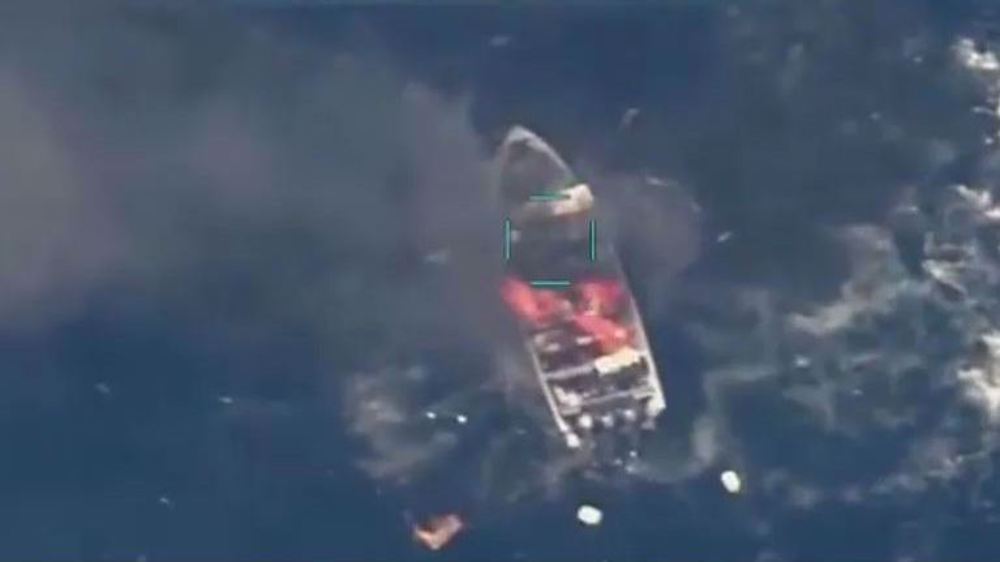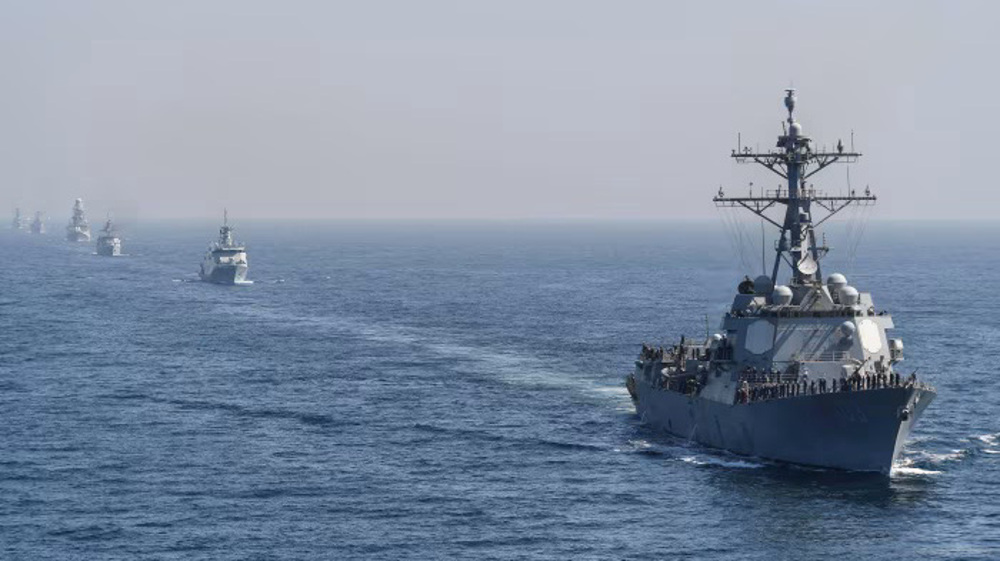US military to continue South China Sea patrols: General
The United States military is planning to continue its so-called “freedom of navigation” patrols in the South China Sea, a top US air force general says, claiming that such missions are needed to prevent China from maintaining control over strategic region.
US Air Force Chief of Staff General David Goldfein said Washington was not going to abandon what he called its “commitment” to defend its allies in the region in case they come under attack, the Rappler reported Sunday.
“I’ll just tell you that there’s no let up in our willingness or our ability to fly or sail where we need to and when we need to, and there will be no let up in the future,” he said. “That’s our commitment to the region.”
Goldfein made the remarks as he visited the Philippine capital of Manilla along with General Charles Brown Jr., US Pacific Air Forces Commander.
The Philippines is one of the South China Sea littoral states that dispute China’s sovereignty claims over the waters, which act as a gateway for trillions of dollars in maritime trade each year.
The US has over the past years sent warships and aircraft to patrol the waters to protect what it calls the freedom of maritime of navigation in the wake of China’s growing influence in the region.
Washington claims that Beijing has been conducting a land reclamation program in the sea by creating artificial islands and militarizing a series of islets there.
China has strongly denied the charges and blasted the patrols as provocative.
Goldfein expressed concern over what he described as China’s violation of "international rules of order" by sending naval vessels into Philippine territorial waters from February all through early August, as reported by the Armed Forces of the Philippines (AFP).
"I think quite frankly any activity that we see both at sea and in the air, and increasingly now, we’re also having the same conversation in space and in cyber, has got to adhere to some international rules of order that we all live by. So, anybody in the region that violates those, it’s concerning," Goldstein said, adding:
Brown reiterated that the regular US freedom of navigation and overflight operations (FONOPs) in the South China Sea acted as deterrence against attempts to bend the rules.
“We have to highlight the facts when those that don’t follow rules-based international order, no matter who that might be, we do highlight that. So, part of our operations are to deter, or also prove the fact that you should be able to fly, sail, and operate no matter what nation you are, where international law allows,” Brown said.
As part of its strategic shift to deter China, the US under President Donald Trump has moved many of its assets and forces from the Middle East to the Indo-Pacific region.
American officials have over the past months emphasized alliances and strategic partnerships with countries like the Philippines, Japan, Vietnam, and Indonesia during a flurry of visits to the region.
In Manila, Goldfein met with Lieutenant General Rozzano Briguez, Commanding General of the Philippine Air Force (PAF), and discussed the PAF Flight Plan 2028 to build a credible air defense capability.
Back in March, US Secretary of State Mike Pompeo told during a visit to Manila stated that the 1951 Mutual Defense Treaty (MDT) between the Philippines and the US also covers the South China Sea.
Under the MDT, any armed attack on Filipinos in the leads to a military response from Washington.
Read More:
- China warns US against F-16 fighter jets sale to Taiwan
- China says foreign forces ‘conniving’ in Hong Kong
The statements come as tensions are simmering between the United States and China over a host of issues, including Trump’s trade war against Beijing and his willingness to forge arms deals with Taiwan despite China’s warnings.
The Trump administration also stands accused of stirring unrest in Hong Kong.
‘Textbook definition of terrorism’: Tehran denounces Pelosi’s call on US to exact ‘pain’ on Iranians
VIDEO | 39th AU summit opens in Addis Ababa with focus on water security, peace, and development
VIDEO | Iran: The stronghold Washington lost
Anti-Iran ‘Munich circus’ shows Europe has lost geopolitical weight: Araghchi
Swiss to act as venue of next round of Iran-US talks: Report
Report: Over 50,000 soldiers fighting in Israeli military hold foreign citizenship
Danish PM warns US attack on Greenland would spell end of NATO
Power running out at key Gaza hospital, ICU patients at risk: Report











 This makes it easy to access the Press TV website
This makes it easy to access the Press TV website